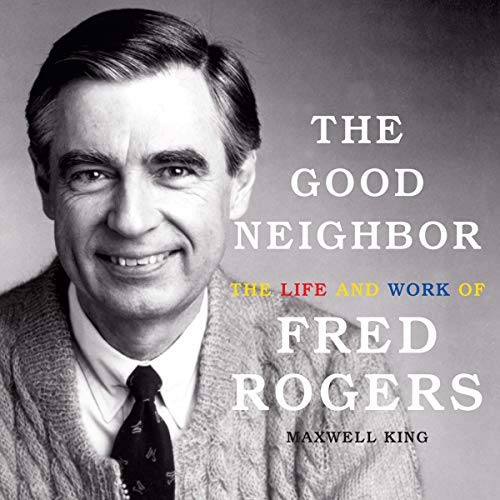


The morally serious student just doesn’t fit in at Dartmouth, and transfers to the music school at Rollins in Florida. He doesn’t fit in with the athletic culture of his school, but his kindness to the star athlete, who he helps with studies while the athlete was hospitalized, won the attention of his classmates. The gift of a puppet leads to setting up a puppet theater in the attic of his home. His love of music is encouraged, and when he is allowed to choose a piano, he selects a Steinway concert grand that his grandmother purchases, and that followed him through life. We meet a boy who was overly protected by loving parents until grandparents helped him to begin to spread his wings. In this first full-length biography on Roger’s life, King traces the course of his life from his privileged childhood in Latrobe, Pennsylvania, to the generous way he ended his life, dying of stomach cancer.

Maxwell King, who knew Rogers for many years through his leadership in several philanthropic organizations in Pittsburgh, makes the point that the Rogers we saw on screen was the Rogers everyone who worked with him or met him encountered. My son grew up with him, and I remember coming in when Mister Rogers’ Neighborhood was on and I could feel the tensions of the day drain away, and my racing thoughts slow down as I listened to him talk calmly and slowly, feeding his fish, and telling me that “I like you just the way you are.” The only thing I found myself wondering sometimes was “is this guy for real.” Summary: The biography of this pioneer in children’s television, the good neighbor in life as well as on screen. The Good Neighbor: The Life and Work of Fred Rogers, Maxwell King.


 0 kommentar(er)
0 kommentar(er)
